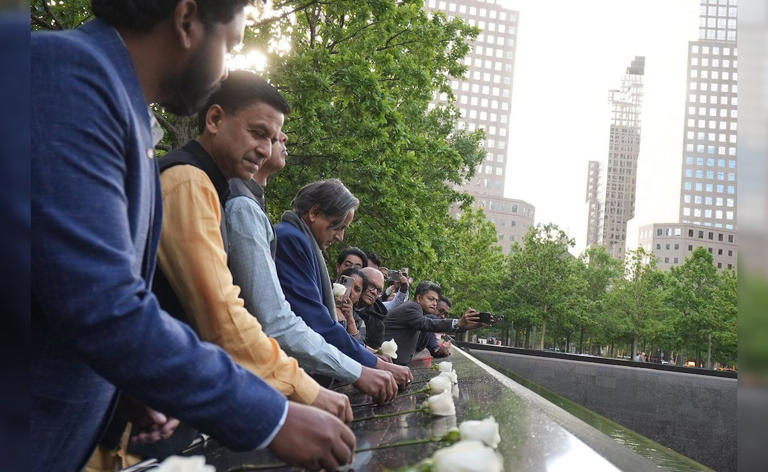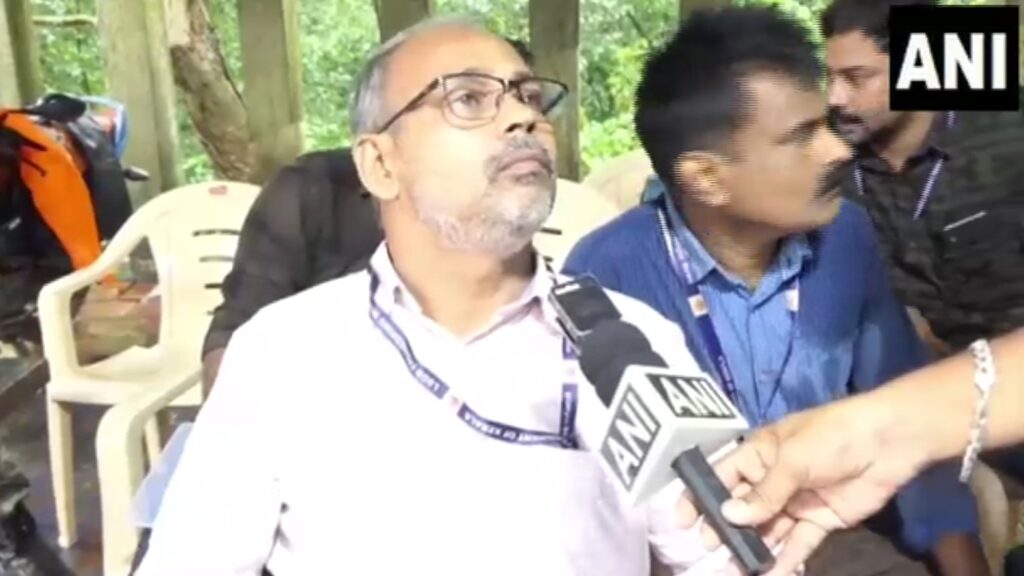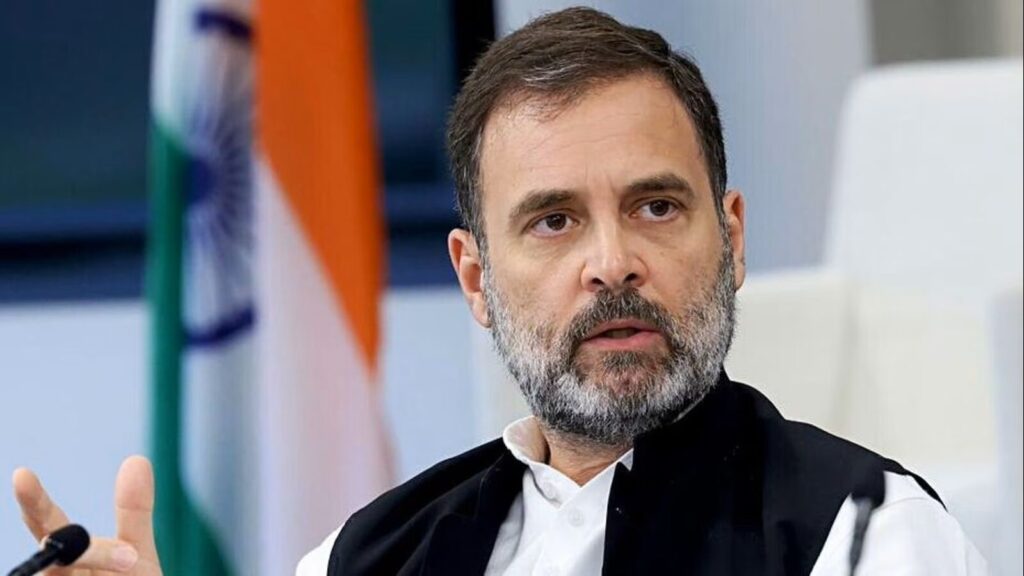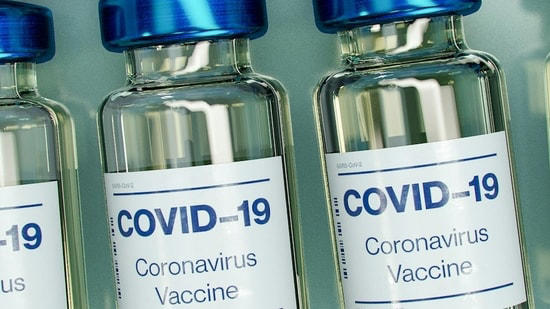Shashi Tharoor’s US Mission: Unpacking India’s Fight Against Terrorism and Operation Sindoor
Shashi Tharoor, a prominent Indian politician and leader of an all-party delegation, embarked on a significant diplomatic mission to the United States and other countries to address the persistent threat of terrorism, particularly in the wake of a deadly attack in Pahalgam, Jammu and Kashmir, on April 22, 2025. The delegation’s visit began with a poignant tribute at the 9/11 Memorial in New York, symbolizing India’s solidarity with global victims of terrorism. Tharoor’s speeches, delivered at the Indian Consulate and other venues, underscored India’s resolve to combat terrorism through both diplomatic efforts and precise military actions, such as Operation Sindoor. This article explores the key aspects of Tharoor’s mission, India’s response to terrorism, and the broader implications for international cooperation, drawing from his statements and the context of recent events.
Why Did Shashi Tharoor Visit the 9/11 Memorial?
Tharoor’s visit to the 9/11 Memorial on May 25, 2025, was a deliberate act to draw parallels between the terrorist attacks on the United States and India’s ongoing struggles with terrorism. He emphasized that the scars of 9/11 resonate with India, which has faced numerous terrorist attacks, including the recent Pahelgam atrocity claimed by the Resistance Front (TRF), a front for the UN-proscribed Lashkar-e-Taiba. Tharoor, who was in New York during the 9/11 attacks, recalled the global solidarity expressed at the time, stating, “We are all New Yorkers now.” By paying tribute at the memorial, the delegation aimed to convey a message of shared suffering and unity against terrorism, highlighting that victims of the Pahelgam attack included Indians, a Nepalese citizen, and others targeted based on their religious identity.
"We will visit the 9/11 memorial in New York and remind world that we, like the people there, are victims of repeated series of terrorist attacks for the last 4 decades."
— News Arena India (@NewsArenaIndia) May 24, 2025
- Indian MP Shashi Tharoor pic.twitter.com/mEvWyKPPSu
The visit served as a powerful symbol of India’s commitment to global anti-terrorism efforts. Tharoor noted that the memorial visit was meant to underscore the need for collective resolve, similar to the determination shown by the United States post-9/11. India’s experiences, including the 2008 Mumbai attacks and the 2019 Pulwama attack, mirror the global challenge of terrorism, making the 9/11 Memorial a fitting starting point for the delegation’s mission to rally international support.
What Was Operation Sindoor and Its Significance?
Operation Sindoor, executed on May 6-7, 2025, was India’s calculated response to the Pahelgam attack, which killed 26 people, including 25 Indians and one Nepalese citizen. Tharoor described the operation as a “hit hard, hit smart” strategy, involving precise strikes on nine terrorist bases, headquarters, and launchpads in Pakistan, targeting groups like Lashkar-e-Taiba, Jaish-e-Mohammed, Hizb-ul-Mujahideen, and others. Conducted at 1:05 AM to minimize civilian casualties, the operation was a clear message of India’s intolerance for terrorism while demonstrating restraint to avoid escalating into a broader conflict.
The operation targeted known terrorist infrastructure, including a 200-acre Lashkar-e-Taiba campus in Pakistani Punjab and bases in Muridke, Bahawalpur, and Muzaffarabad. Tharoor emphasized that no military, civilian, or governmental targets were hit, and India communicated its intent via a hotline between the directors general of military operations, signaling that the strikes were an act of retribution, not a prelude to war. However, Pakistan’s retaliatory shelling and drone attacks led to an 88-hour conflict, resulting in 19 civilian deaths and 59 injuries in India. India’s subsequent strikes on 11 Pakistani military targets, including an airbase near Rawalpindi, forced Pakistan to de-escalate, establishing a “new normal” where terrorism would face immediate consequences.
How Does India Address Pakistan’s Role in Terrorism?
Tharoor’s speeches repeatedly highlighted Pakistan’s role in fostering terrorism, particularly through groups like the Resistance Front and Lashkar-e-Taiba, which operate from safe havens in Pakistan. He pointed to a history of Pakistani denial, from the 2008 Mumbai attacks to the 2015 Pathankot attack, where Pakistan dismissed evidence of its involvement. The Pahelgam attack, claimed by TRF within an hour, further exposed Pakistan’s complicity, as the group is a known front for Lashkar-e-Taiba, headquartered in Pakistani Punjab. Tharoor criticized Pakistan’s refusal to dismantle terror infrastructure and its reliance on denial, even when evidence, such as intercepted communications during the Mumbai attacks, was undeniable.
India’s diplomatic efforts include pushing for TRF’s listing as a terrorist organization by the UN Sanctions Committee, a process hindered by Pakistan and China, who removed references to TRF from a UN Security Council press statement. Tharoor stressed that India would not rely solely on diplomacy but would exercise its right to self-defense, as demonstrated by Operation Sindoor. He called for accountability for those who finance, train, and direct terrorists, signaling that India’s response to future attacks would be swift and precise, aiming to deter Pakistan’s revisionist ambitions in Kashmir.
What Role Does the Indian Diaspora Play in This Mission?
Tharoor underscored the influential role of the Indian diaspora, particularly in the United States, where they are the wealthiest ethnic group with significant political and social clout. Speaking at the Indian Consulate, he urged the diaspora to engage with elected representatives and public opinion to raise awareness about India’s fight against terrorism. The diaspora’s presence at the event, despite it being Memorial Day weekend, highlighted their commitment to supporting India’s narrative. Tharoor described them as a “force multiplier,” capable of amplifying India’s message about the need for global solidarity against terrorism.
The delegation’s interaction with Indian Americans, including media, academics, and community leaders, aimed to foster understanding and support for India’s anti-terrorism stance. Tharoor shared stories of unity in Kashmir, where Muslims and Hindus stood together against the Pahalgam attack, to counter attempts to provoke communal discord. By encouraging the diaspora to advocate for India’s cause, Tharoor sought to strengthen international pressure on Pakistan and enhance global cooperation in combating terrorism.





















